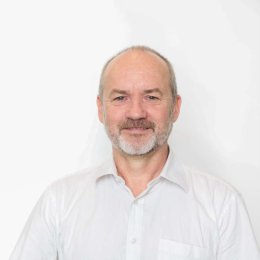WE ARE PLEASED TO WELCOME PROF. HANS VAN OORT AS NEW PROFESSOR OF HIGH-CURRENT SUPERCONDUCTIVITY AT the CHAIR EMS OF FACULTY S&T.
He started on August 21, 2023. His expertise, including his recent position as CTO and Engineering Manager at Tesla Engineering Ltd, promises valuable insights for our field. At Tesla Engineering, Prof. van Oort led the product engineering team in the magnetic division, where he developed superconducting and resistive magnet systems. His experience and knowledge will enrich and strengthen us.
Hans: "I think there is still much to achieve in the field of High-Current Superconductivity. Besides the traditionally active research into increasingly powerful particle accelerators such as the FCC and the Muon collider, there are currently initiatives for the generation and transport of clean energy, in which superconductivity plays a major role. Think especially about fusion reactors, and then not only the larger projects such as ITER or DEMO, for example but also the more small-scale initiatives where much research is being done worldwide. The connection networks between these power plants and the end user can be made more efficient by using superconducting direct current cables. The use of HTS superconductors, and thus research into better and more reliable materials and cables, is essential to the success of such systems.
There is also the ambition to be able to develop superconducting systems without using increasingly scarce cryogenic refrigerants such as liquid helium. Especially in the future, this will be very important for the medical industry, such as in MRI scanners, but possibly also in aerospace, where weight reduction is important. The stability of such systems will then be very important, and here too there is still much to learn in terms of materials, integration with superconductors and distributed cooling methods."
We wish Hans much success and job satisfaction at the Energy, Materials & Systems cluster!
On behalf of the faculty board,
Jennifer, Jan-Willem, Stefan, Wiendelt, Noah, Anneke







